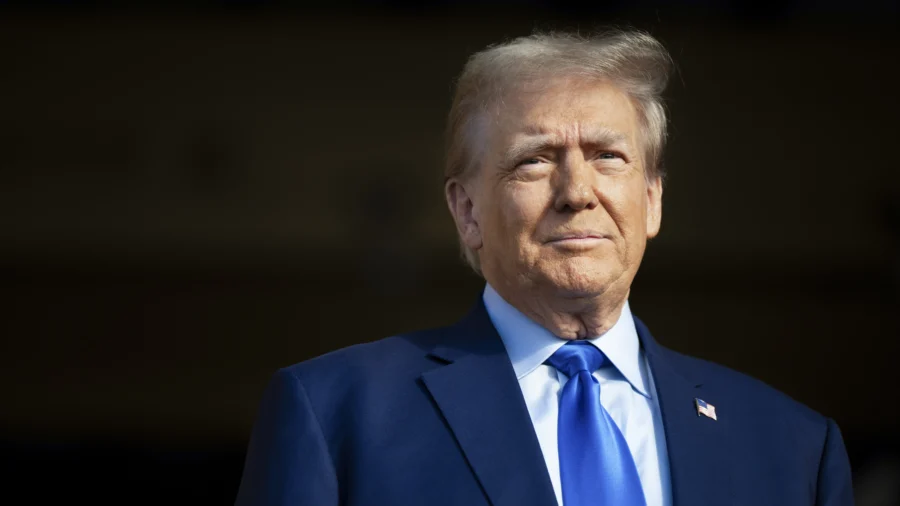In a new order, U.S. District Court Judge Aileen Cannon reset the pretrial deadlines in one of two cases special counsel Jack Smith is prosecuting against former President Donald Trump.
In the case concerning classified documents kept by the former president at Mar-a-Lago, Judge Cannon granted in part and denied in part the defense’s request to postpone deadlines including the trial.
While she denied the motion to change the trial date, she said a delay would “be considered at a scheduling conference on March 1, 2024″—just three days before the trial in the other case Mr. Smith is prosecuting will begin in Washington.
Citing the “high volume” of classified discovery, the judge wrote “it most prudent, given the evolving complexities in this matter, to adjust the first batch of pre-trial deadlines.”
She also noted that she could not “ignore the realities” of the several other trial schedules the defendant, President Trump, faces.
The order sets new deadlines for discovery, including a joint discovery status report on Jan. 9, 2024, and a pretrial motions deadline for Feb. 22, 2024, the last deadline before the rest of the trial schedule will be decided after a March 1, 2024, hearing.
High Volume of Classified Discovery
“The record as it has developed in this case reflects an unusually high volume of unclassified and classified discovery, even as far as CIPA [Classified Information Procedures Act] cases go,” Judge Cannon wrote. “These matters have been aired at nearly every hearing conducted to date.”
Defense attorneys have said numerous times that they need the time to go through 1.3 million pages of unclassified discovery, 5,500 pages of classified discovery, and 60 terabytes of security video footage.
Judge Cannon said this volume was higher that what was originally expected, and more is expected.
To complicate matters, the defense attorneys and defendants each obtained clearance to view classified evidence on different schedules. Additional delays to access were created with the lack of a special facility where classified documents could be reviewed.
One location is set to be ready in 2024. The judge noted that the case investigation began “in February 2022, but no efforts were taken to initiate in earnest the establishment of such a facility until after this case was indicted—adding additional logistical challenges.”
Both parties are also litigating over what portion of classified material the defendants will be allowed to view. Defense attorneys say they will seek to compel additional material from the special counsel’s office, and the FBI. The special counsel’s office is seeking to prevent some of the already-produced classified discovery from the defendants.
“The Special Counsel seeks to withhold from Defendant Trump an unidentified amount of information marked as classified; seeks to withhold from Defendant [Waltine] Nauta all but one page of the 5,500 pages marked as classified; and seeks to withhold the entirety of the classified information from Defendant De Oliveira,” Judge Cannon wrote. Under the new order, hearings for these motions will take place Feb. 15–16, 2024.
The judge also noted that the special counsel’s office has agreed with all of the present challenges, but objects to moving the trial date.
“These evolving and unforeseen circumstances require a reevaluation of the initial period for defense discovery review as contemplated initially,” she wrote in the order. “This Order aims to afford that opportunity in a reasonable fashion, balanced against the public’s right to a speedy trial.”
These circumstances are “not simple,” the judge wrote, and President Trump’s other trial schedules only add another layer of complexity.
Judge Cannon wrote that she has reviewed other CIPA cases cited by both parties, and found nothing comparable to the case before her.
Cases
In Washington, Mr. Smith is prosecuting President Trump in a case that accuses him of illegally interfering with the 2020 elections, and the trial is set for March 4, 2024, a date the presiding judge has held fast to even as she has adjusted other deadlines.
That trial is estimated to last four to eight weeks minimum, attorneys have said.
That same month, President Trump is expected to go to trial in New York for a state criminal case alleging mishandling of business finances. A scheduling conference for this case will be held late February, and the trial schedule may still yet be changed.
Judge Cannon wrote that, as the special counsel’s office as noted, these deadlines are “in flux,” but “the schedules as they currently stand overlap substantially with the deadlines in this case, presenting additional challenges to ensuring Defendant Trump has adequate time to prepare for trial and to assist in his defense.”
From The Epoch Times

